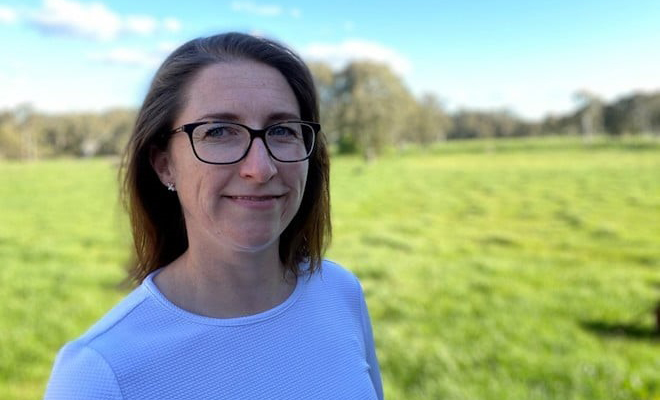KING OF PRUSSIA, PA – 12 December 2022 – CSL Limited (ASX:CSL; USOTC:CSLLY) today announced that its subsidiary, CSL Seqirus, finalized its global collaboration and license agreement with Arcturus Therapeutics Holdings Inc (“Arcturus Therapeutics”; NASDAQ: ARCT). The agreement grants access to Arcturus Therapeutics’ late stage self-amplifying mRNA (sa-mRNA) vaccine platform technology, which recently reported results from a large COVID-19 Phase III vaccine efficacy study, meeting its primary and secondary endpoints of prevention of infection and severe disease with a favorable safety and tolerability profile.
The agreement was announced last month and under the terms of the agreement, Arcturus Therapeutics will receive an upfront payment of US$200 million and will be eligible to receive further payments dependent upon the achievement of certain development and commercial milestones along with royalties/profit sharing on future product sales.
“This agreement provides CSL with an opportunity to strengthen and accelerate our goals for the next generation of mRNA vaccines and underscores our commitment to pursuing new and innovative ways of protecting public health,” said CSL Chief Operating Officer, Paul McKenzie. “This is a significant leap forward with a demonstrated platform that will allow us to further explore influenza-adjacent therapies.”
Under the agreement, CSL will have the exclusive license to Arcturus’ next generation mRNA technology in the fields of influenza, COVID-19 and other respiratory viral diseases, and a non-exclusive license in the multi-pathogen pandemic preparedness field with the right to turn exclusive.
“Like gene therapy for rare diseases, sa-mRNA is a disruptive technology that is on the leading-edge of innovation when it comes to vaccine development,” said Dr. Bill Mezzanotte, Head of R&D and Chief Medical Officer, CSL. “Next-generation mRNA technology serves as one of our strategic scientific platforms at CSL and in our evaluation of Arcturus, we saw the right external innovation to strategically complement our in-house next-generation mRNA capabilities and reinforce our longstanding leadership in influenza.”
About COVID-19
COVID-19 is a disease caused by a virus named SARS-CoV-2 and is highly contagious.1 COVID-19 may cause respiratory symptoms – ranging from mild symptoms to life-threatening severe illness. Symptoms may appear 2-14 days after exposure to the virus.2 During the COVID-19 pandemic, there have been over 95 million confirmed cases of the disease and over 1 million deaths in the U.S.3 The Centers for Disease Control and Prevention (CDC) recommends COVID-19 vaccination for everyone ages six months and older in the U.S. for the prevention of COVID-19.4 It is recommended to stay up-to-date on COVID-19 vaccination by completing a primary series vaccination and receiving the most recent booster dose recommended for them by the CDC.4
About Seasonal Influenza
Influenza is a common, contagious seasonal respiratory disease that may cause severe illness and life-threatening complications in some people.5 Influenza can lead to clinical symptoms varying from mild to moderate respiratory illness to severe complications, hospitalization and in some cases, death.5 Because transmission of influenza viruses to others may occur one day before symptoms develop and up to five to seven days after becoming sick, the disease can be easily transmitted to others.5 Estimates from the CDC report that during the 2019/20 influenza season, there were an estimated 405,000 influenza-related hospitalizations in the U.S.6 The CDC recommends annual vaccination for individuals aged six months and older, who do not have any contraindications.7 Since it takes about two weeks after vaccination for antibodies to develop in the body that help protect against influenza virus infection, it is recommended that people get vaccinated before influenza begins spreading in their community.7 The CDC recommends that people get vaccinated by the end of October.7
About Pandemic Influenza
Pandemic influenza is a contagious airborne respiratory disease that is unpredictable in timing and severity.8 The risk of influenza-associated morbidity and mortality is greater with pandemic influenza than with seasonal influenza because there is likely to be little or no pre-existing immunity to the virus in the human population.9 Four influenza pandemics have occurred over the past century, with the 1918 pandemic being the most severe in recent history, estimated to have killed up to 50 million people worldwide.10 According to the CDC, a novel influenza A virus such as the highly pathogenic avian A(H5N1) strain can cause severe disease and have a high mortality rate.11 If the influenza A(H5N1) virus were to change and become easily transmissible from person to person while retaining its capacity to cause severe disease, the consequences for public health could be severe.8
About CSL
CSL (ASX:CSL; USOTC:CSLLY) is a leading global biotechnology company with a dynamic portfolio of lifesaving medicines, including those that treat haemophilia and immune deficiencies, vaccines to prevent influenza, and therapies in iron deficiency, dialysis and nephrology. Since our start in 1916, we have been driven by our promise to save lives using the latest technologies. Today, CSL – including our three businesses, CSL Behring, CSL Seqirus and CSL Vifor – provides lifesaving products to patients in more than 100 countries and employs 30,000 people. Our unique combination of commercial strength, R&D focus and operational excellence enables us to identify, develop and deliver innovations so our patients can live life to the fullest. For inspiring stories about the promise of biotechnology, visit CSLBehring.com/Vita and follow us on Twitter.com/CSL







